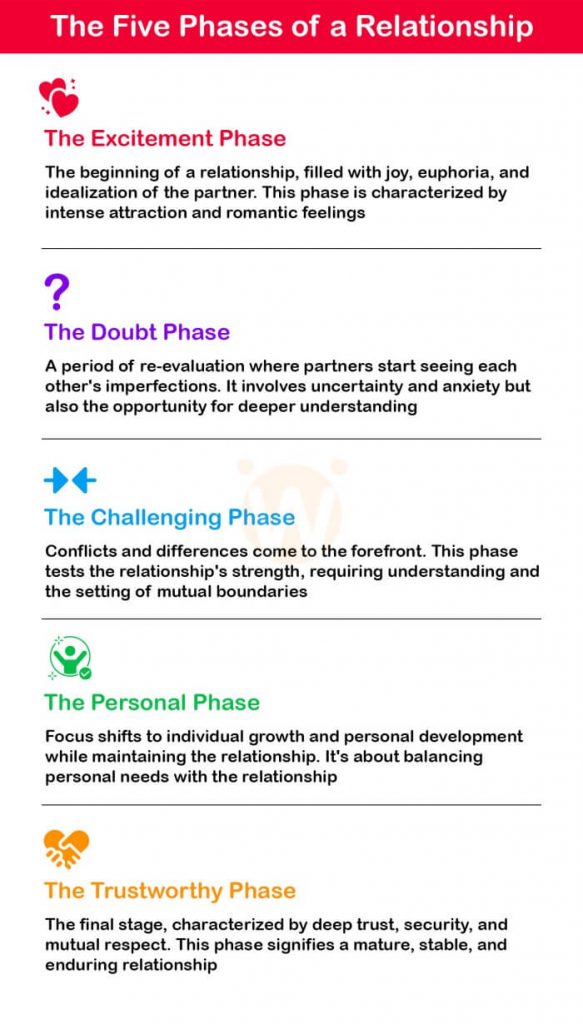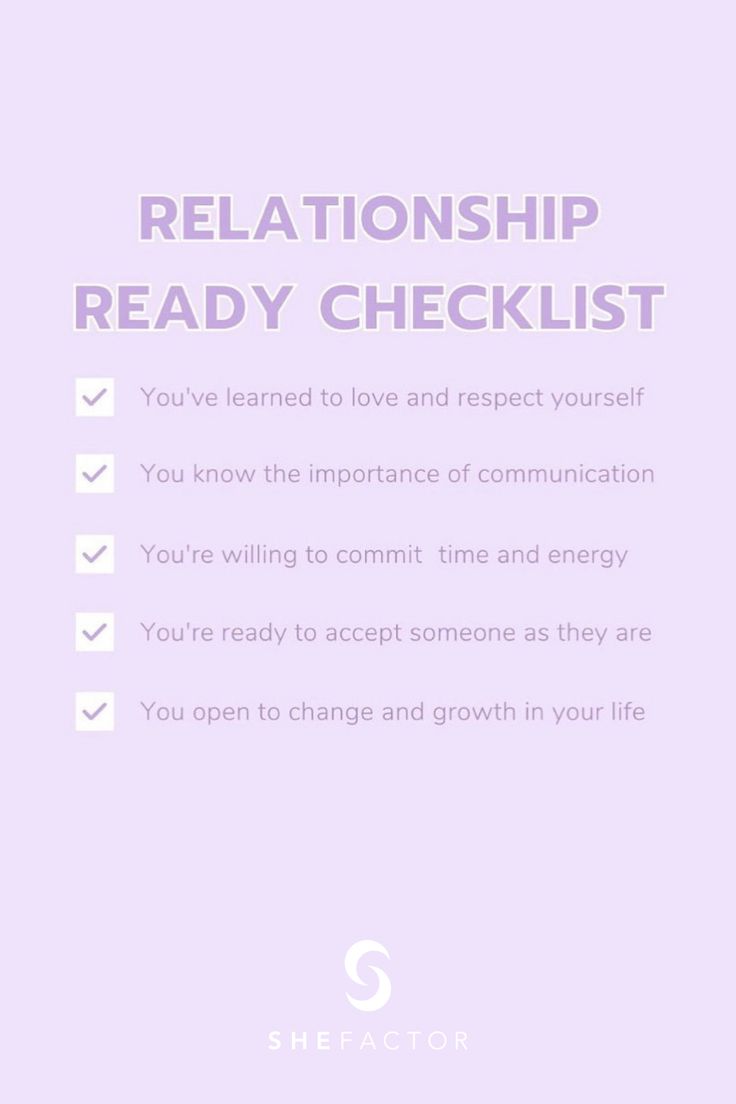
Signs That You’re Ready for a Relationship
Emotional Stability
Emotional stability is a cornerstone of being ready for a relationship. It means knowing how to manage your feelings and understanding your emotional triggers. For instance, if you find yourself reacting calmly during conflicts rather than spiraling into anger or sadness, that’s a great sign.
Independence
Being independent doesn’t just mean living alone; it’s about knowing who you are without a partner. Engaging in hobbies, maintaining friendships, and having personal goals contribute to a healthy sense of self. Remember, a relationship should enhance your life, not complete it.
Prioritizing Communication
Open communication is essential. If you’re comfortable discussing feelings, boundaries, and expectations, you’re well on your way. Practice active listening; it shows respect and fosters a deeper connection.
Ready to dive into love? Evaluating these signs is your first step!

Self-Reflection Before Commitment
Understanding Your Motivations
Self-reflection is crucial before diving into a committed relationship. It’s essential to understand what drives you to seek a partner. Are you looking for companionship, or is it a desire to conform to societal expectations?
Consider asking yourself:
- What are my reasons for wanting a relationship?
- Am I filling a loneliness gap?
- Do I genuinely want to share my life with someone?
Assessing Your Emotional Maturity
Emotional maturity plays a vital role in maintaining healthy relationships. If you can manage your reactions and handle setbacks with grace, it reflects your emotional growth.
Reflect on moments when you successfully navigated challenges. Did you communicate your feelings calmly?
Identifying Relationship Expectations
Finally, clarify your expectations. Do you envision a partner who shares your interests, or are you open to differences? Defining your deal-breakers and must-haves can guide you towards a fulfilling connection.
This self-reflection sets a strong foundation for a healthy relationship.

Building Strong Foundations
Establishing Trust
Building a strong foundation in a relationship starts with trust. Trust isn’t built overnight; it’s earned through consistent actions. Being reliable, keeping promises, and practicing honesty are just a few ways to foster it. For example, if your partner knows they can depend on you to be available when needed, trust blooms naturally.
Managing Conflict Constructively
Inevitably, conflicts will arise. What matters is how you handle them. Constructive conflict management involves addressing issues calmly without resorting to blame. Try using “I” statements to express your feelings, such as “I feel hurt when…” This approach encourages understanding rather than defensiveness.
Sharing Common Values and Goals
Lastly, sharing common values and goals strengthens your bond. Discuss your long-term aspirations early on, whether it’s career ambitions, family plans, or lifestyle choices. Identifying shared values ensures you’re on the same path, making the journey together much more rewarding.
With these foundations in place, your relationship can thrive!

Red Flags Indicating Unreadiness
Fear of Intimacy
Recognizing signs of unreadiness is crucial for a healthy relationship. One major red flag is a fear of intimacy. This could manifest as avoiding deep conversations or being uncomfortable with physical affection. If someone consistently keeps you at arm’s length, it might indicate an underlying fear of getting hurt.
Lack of Emotional Availability
Another warning sign is a lack of emotional availability. If your partner frequently chooses to shut down during discussions or appears disconnected when you share your feelings, it’s essential to address it. Healthy relationships thrive on mutual support, and without emotional engagement, connection suffers.
Unresolved Past Relationships
Lastly, unresolved past relationships can hinder your present bond. If a partner is still hung up on an ex or frequently compares you to someone from their past, it can create feelings of inadequacy. Addressing these unresolved issues is vital; otherwise, they could jeopardize your relationship’s future.
Being aware of these red flags allows for a more informed and healthier relationship.

Seeking Feedback and Advice
Talking to Trusted Friends or Family
When navigating the complexities of relationships, seeking feedback from trusted friends or family can offer valuable insights. These individuals know you well and can provide honest, objective perspectives. For instance, my best friend once pointed out how I tended to overlook red flags in past relationships, which helped me make better choices moving forward.
- Consider asking:
- What do you think my strengths are in a relationship?
- How do you perceive my approach to communication?
Their input can illuminate blind spots and guide your self-reflection.
Seeking Professional Guidance if Needed
If you’re facing recurring challenges or feel overwhelmed, seeking professional guidance might be the right step. A therapist can help you navigate emotional barriers or provide strategies for healthy communication.
Engaging with a professional shouldn’t be seen as a weakness; it’s a proactive step towards personal growth and relationship clarity. This way, you can move forward with confidence and intention!

Balancing Personal Growth and Relationship Readiness
Cultivating Independence Within a Relationship
Balancing personal growth and relationship readiness is essential for long-term success. Cultivating independence within a relationship ensures that both partners maintain their individuality. This can be as simple as dedicating time to personal hobbies or hanging out with friends without your partner. For example, I’ve found that scheduling “me” time not only nurtures my interests but also adds a fresh perspective to my relationship.
- Consider these practices:
- Set personal goals that excite you.
- Encourage each other to pursue individual passions.
Continual Self-Improvement
Continual self-improvement is another crucial aspect. Embracing lifelong learning fosters a growth mindset that benefits both partners. Whether it’s reading self-help books, attending workshops, or practicing mindfulness, investing in yourself enriches your relationship.
By focusing on personal development, you contribute positively to the partnership, making it resilient and fulfilling. Remember, a thriving relationship flourishes when both individuals grow together and apart!

Conclusion and Final Thoughts
Recap of Readiness Indicators
As we wrap up our conversation on relationship readiness, it’s crucial to recap the key indicators that signify you’re prepared for a loving partnership. Emotional stability, independence, and effective communication are foundational elements. Additionally, understanding personal motivations, emotional maturity, and shared values play significant roles in creating a strong bond.
- Remember these indicators:
- Emotional stability and maturity
- Independence and self-awareness
- Trust and open communication
Embracing the Journey of Relationship Readiness
Embracing the journey of relationship readiness means recognizing that it’s okay to take your time. Each step you take towards self-discovery and growth enriches your future relationships. Personal anecdotes remind us that there’s no rush; the right connection often happens when we least expect it.
So, invest in yourself, learn from past experiences, and be open to the beautiful journey love offers ahead. A fulfilling relationship awaits you, rooted in readiness and mutual respect!
